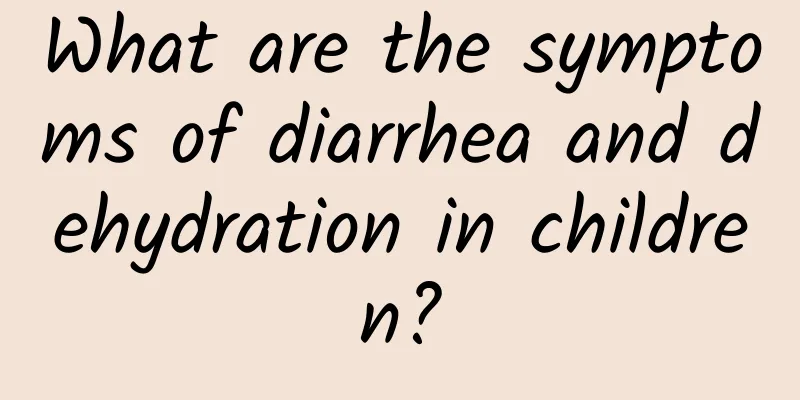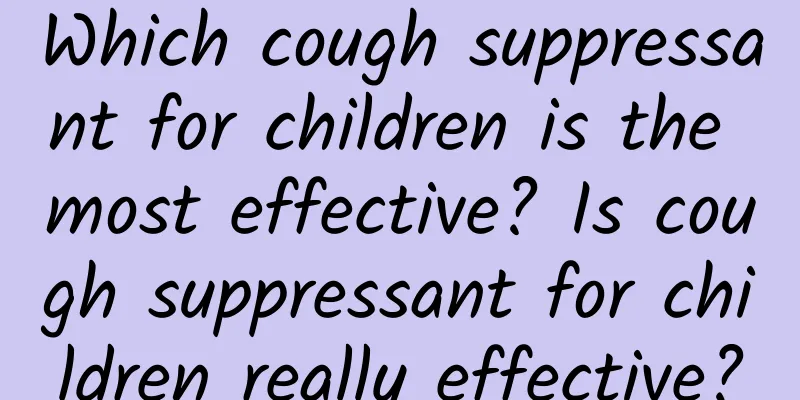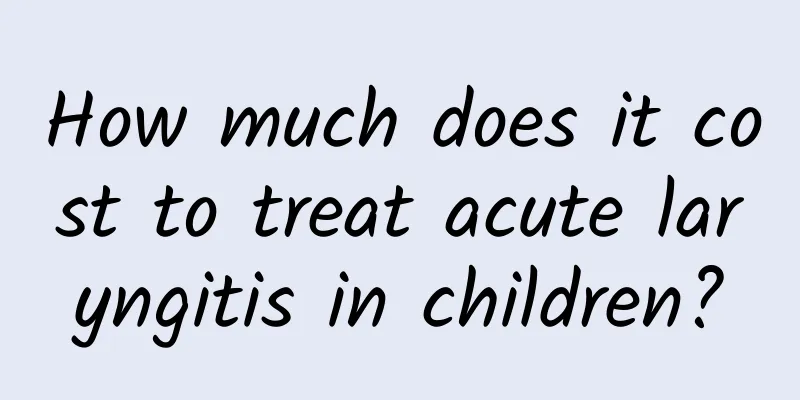What are the symptoms of diarrhea and dehydration in children?

|
Children who suffer from dehydration due to diarrhea may experience symptoms such as thirst, dry skin, decreased urine volume, and abnormal mental state. In severe cases, it may be life-threatening and requires timely medical attention and water replenishment to correct the dehydration. 1) Symptoms of mild dehydration Mild dehydration usually manifests as thirst, chapped lips or dry skin. The child may become irritable, but his mental state is generally normal. If parents find these symptoms, they should replenish water for the child in time at an early stage. Oral rehydration salts (ORS) are recommended, which can help the child quickly restore fluid balance. In case of mild dehydration, the child can also drink appropriate amounts of light soup or diluted juice, but avoid drinking sweet drinks or carbonated drinks. 2) Symptoms of moderate dehydration Further dehydration will affect urine output and mental state. Parents may observe that their children's urine output has decreased significantly, or even that they have not urinated for more than 6 hours, their eye sockets are slightly sunken, their tears decrease when they cry, and they are mentally tired or obviously sleepy. In this case, you should seek medical attention immediately and replenish body fluids under the guidance of a doctor. Common methods include intravenous infusion or further correction of electrolyte imbalance. 3) Symptoms of severe dehydration Severe dehydration is a dangerous stage of diarrhea in children, with obvious symptoms, including sunken eye sockets, poor and dry skin, cold limbs, and even confusion or coma. The child may show extreme fatigue or even shock. This situation is extremely urgent and you should call the emergency number or send to the nearest hospital for treatment immediately. Intravenous fluid replacement, including saline or glucose solution, is often required in the hospital to quickly save the condition. Parents need to closely observe the symptoms of diarrhea and dehydration in children. If the symptoms are mild, pay attention to oral rehydration. If the symptoms are moderate or above, seek medical attention immediately. The key to preventing diarrhea and dehydration in children is to pay attention to the child's dietary hygiene at all times and ensure a clean feeding environment. If diarrhea occurs, please intervene in time. Regular health checks for infants and young children can also reduce the risk of related complications. |
<<: Mild neonatal hypoxic-ischemic encephalopathy
>>: How to reduce high jaundice in newborns and what medicine to take
Recommend
Is polio contagious?
Polio is a contagious disease that is mainly tran...
What is the best way to treat patent ductus arteriosus?
What is the best way to treat patent ductus arter...
How to treat a child with a cough and fever? What is the most effective way to treat a child with a cough and fever?
It is normal for children to have coughs and feve...
Symptoms of hand, foot and mouth disease in adults
Adults with hand, foot and mouth disease often pr...
What to do if there is a lack of nutrition and metabolism? How to prevent a lack of nutrition and metabolism
Prevention of nutritional metabolic deficiencies ...
Symptoms of myocarditis caused by cold in children
If children experience chest pain, fatigue, short...
What are the treatment principles for Kawasaki disease?
More and more diseases are appearing around us. I...
What are the ways to prevent kidney disease in children? Children with kidney disease can do 2 exercises
What kind of exercises can children with kidney d...
What measures can be taken to prevent diarrhea in children
Pediatric diarrhea is a very common disease that ...
What medicines are used for pneumonia in children
Children are more susceptible to pneumonia due to...
Benefits and precautions of eating mangoes for pregnant women. Will the fetus suffer from jaundice if pregnant women eat mangoes?
In order to prevent the fetus from suffering from...
How to deal with pediatric convulsions, 3 first aid measures to learn
Convulsions in children should be taken seriously...
What are the dangers of diarrhea in children
What are the harms of diarrhea to children? Child...
What medicine should I take for diarrhea in children?
Diarrhea in children requires the identification ...
Early symptoms of hand, foot and mouth disease
Hand, foot and mouth disease is an acute infectio...









